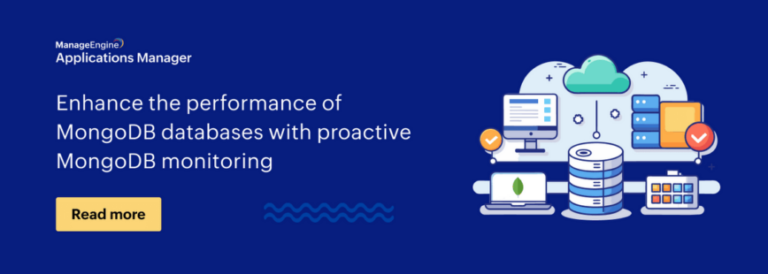First of all, it is worth noting that it allows you to set up auto-deployment of applications, auto-scaling, and monitoring. This means that developers can focus on the product, not the infrastructure.
Using cPanel in such scenarios is especially valuable as application panels offer powerful tools for server configuration, service management, and security, as well as intuitive visual controls over the server architecture.
Here are the key reasons why SaaS teams choose a scalable VPS:
Opting out of scalable solutions can be very expensive. If a service suddenly becomes popular, unprepared infrastructure will lead to failures, data loss, and reputation damage. Such mistakes are difficult to fix, especially at an early stage.
Many startups launch with the bare minimum of infrastructure, hoping that limited resources will carry them through the early stages. This “build it now, fix it later” approach works only until growth arrives. When demand spikes, unprepared teams often scramble to expand capacity, leading to rushed changes, unstable environments, dependency conflicts, and a rapid loss of operational control.
Traditional Hosting Is No Longer Enough
Until recently, SaaS platforms were based on classic shared hosting. This format was convenient, cheap, and straightforward. However, as the audience grew and services became more complex, severe limitations began to appear. Resources were divided between clients, response times increased, security suffered, and scaling turned into a painful process.
At the same time, administration remains simple and accessible even for small teams, cPanel allows you a centralized platform where you can monitor resources, manage the web server, configure SSL certificates, and much more.
Among the vast number of solutions on the market, VPS remains the optimal choice for SaaS teams due to its combination of flexibility, power, and affordability. The following advantages stand out in particular:
The world of cloud technologies is changing rapidly, and with it, the approach to creating and scaling SaaS platforms is transforming. Today, you must not just launch an online service but ensure its sustainability, flexibility, and smooth growth.
Key Advantages of VPS for SaaS Teams
SaaS development is a constant forward movement. To maintain this movement, you desperately need a solid foundation. Scalable VPS hosting is exactly that foundation. It allows you to quickly adapt, easily scale, and remain stable in the face of growth and change.
- predictable resource allocation;
- high disk speed;
- full root access and customization;
- support for DevOps tools;
- easy horizontal scaling;
- integration with backup systems;
- ability to quickly clone environments.
Such capabilities allow you to automate updates, quickly fix bugs, and painlessly implement new features. For SaaS, where development speed and reliability go hand in hand, this is critical.
cPanel offers automatic installation scripts, cron job management, a built-in monitoring system, and support for popular CMS and development languages, which is especially convenient. It simplifies DevOps operations and speeds up the implementation of new solutions.
How Scalable VPS Supports Growth
VPS hosting eliminated these weak points. Thanks to process isolation, dedicated resources, and management flexibility, it became an ideal base for cloud products. SaaS platforms can quickly adapt to growing loads without losing stability or speed. In addition, VPS easily integrates with containerization and DevOps practices.
VPS hosting allows you to avoid these problems. It offers a stable foundation that can be developed as needed, without haste and chaos. You can automate the settings of restrictions, backup schedules, and updates in advance from cPanel to avoid wasting time on urgent manual work at peak times.
Reliable providers offer flexible VPS packages with cPanel support, full root access, SSD storage, and vertical scalability. These solutions allow SaaS companies to grow at their own pace while maintaining the security and performance of their platforms.
A scalable VPS easily copes with these challenges. Additional cores, RAM, disk space which can easily be increase in minutes, without migrations and downtime. This means that the platform is ready for peak loads, be it’s a marketing campaign or seasonal activity.
- fast scaling without downtime;
- flexible resource management;
- easy migration between configurations;
- minimal risks of overload;
- budget savings due to precise settings;
- ability to work with different stacks;
- high availability support.
cPanel integration adds convenience and saves time by providing developers with a simple and intuitive interface for managing resources. This is especially important in teams where one person combines several roles at once.
Pitfalls of Ignoring Scalability
By Glenn Blake
Most importantly, scaling can be done in parts. You do not have to increase everything at once — sometimes only RAM or a processor is enough. This approach helps control the budget and avoid unnecessary costs.
If you think that scalability is only needed for large projects, then this is also a fairly gross and common mistake. Any SaaS platform should be ready for growth. Even 100 new users per week can cause overload if the architecture is not designed for flexibility.
When paired with cPanel, such an infrastructure becomes not only powerful but also truly convenient to operate — especially in conditions of limited resources or in small teams, where administration must be as efficient as possible.
VPS and Automation: a Perfect Match
When designing a SaaS application, you must consider both infrastructure and user experience requirements. VPS allows you to build a logical architecture with a focus on scale and security. This is the basis for stable growth.
Secondly, thanks to access to the root system, teams can use any tool — from Ansible to Jenkins — to configure and manage the environment. This is especially useful for CI/CD approaches.
You should not delay the decision on a reliable infrastructure. Platforms that scale painlessly win in the long run. They are ready for new markets, demands, and user expectations. Bet on stability and your growth will have no limits.
cPanel is one of the most popular control panels, providing an intuitive web interface for working with domains, mail, databases, and files without the need for deep technical knowledge. In conjunction with VPS, it gives SaaS teams a robust and secure infrastructure with convenient management.
Businesses are increasingly choosing modern virtual hosting solutions. It is no coincidence that companies are looking to buy cPanel hosting, as it allows you to automate processes and maintain control over the infrastructure without unnecessary costs and efforts.
Speed and flexibility are the two pillars of a successful SaaS platform. However, to maintain these qualities in the long term, you need to automate as much as possible. This is where VPS reveals its potential.
Every SaaS team faces the challenge of growth: some are launching new features, some are entering international markets, and some are rapidly gaining users. The platform must withstand the load and not let customers down in each of these scenarios.
Using cPanel in this bundle allows you to monitor resource load in real time, run scripts, check logs, and set up automatic notifications — all of which are important when traffic increases sharply.






